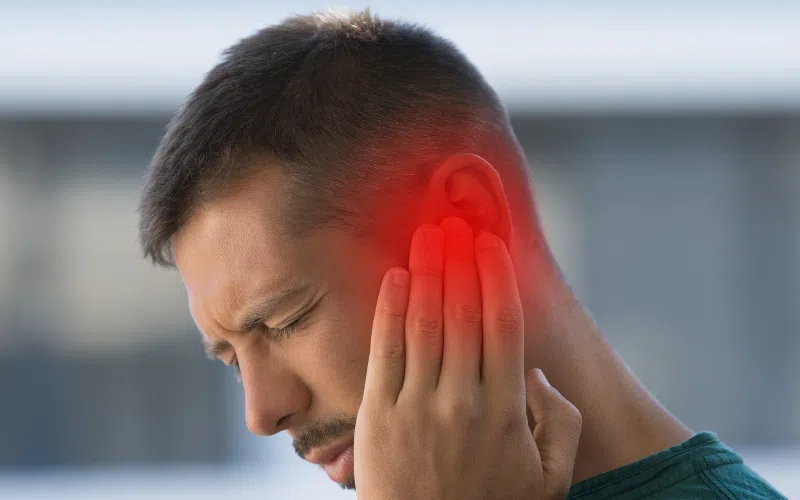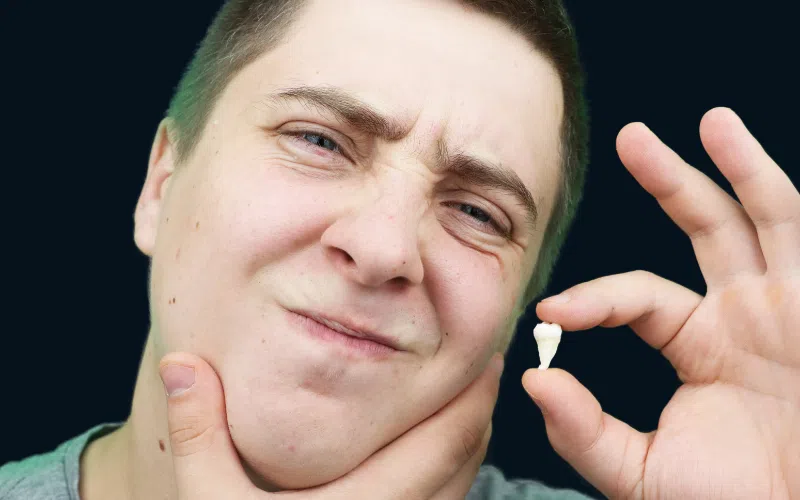Brentwood: (615) 235-1966

Suffering Ear Pain After Wisdom Teeth Removal?
Brentwood, TN

Experiencing ear pain after wisdom teeth removal can be unsettling and uncomfortable. While it may seem unrelated, ear pain can be a common side effect of this dental procedure. In this comprehensive guide, we’ll delve into the reasons behind ear pain after wisdom teeth removal, explore potential causes such as irritation, infection, and nerve damage, and provide practical strategies for managing discomfort. Whether you’re currently dealing with ear pain or preparing for wisdom teeth removal, this resource will equip you with valuable insights to navigate this aspect of the recovery process.
Is Ear Pain After Wisdom Teeth Removal Normal?
Is it normal to experience ear pain after wisdom teeth removal? Following the extraction, swelling in the area is common, which can cause ear pain during the healing process.
Your dentist may prescribe steroids and pain relievers to alleviate swelling and discomfort, expediting healing.
However, complications can arise if post-operative instructions aren’t followed. These include:
Irritation: Irritation around the extraction site is typical during healing and may cause ear discomfort due to nerve connections. Steroids and pain relievers can help soothe this irritation.
Infection: If healing doesn’t proceed as expected, an infection, known as a “dry socket,” can occur. Symptoms include discomfort in the jaw and ears. Promptly contacting your dentist is crucial if any issues arise during healing to prevent complications such as jawbone infections or nerve damage.
Nerve damage: Persistent pain unrelated to infection or healing issues may indicate nerve damage from the extraction procedure. Collaborating with a neurologist and engaging in brain plasticity exercises may help alleviate or eliminate this discomfort, suggesting hope for managing nerve-related pain effectively.
How to Manage Pain:
After wisdom teeth extraction, managing pain is crucial. You can use over-the-counter medications like Motrin, Tylenol, Aleve, Advil, or Ibuprofen following the instructions on the bottle. For more severe pain, your dentist or doctor may prescribe medication.
Additionally, you may experience temporary numbness around your lip, chin, or tongue, which is normal and nothing to be alarmed about. A slightly elevated body temperature is also common during recovery, but if it persists for multiple days, it’s advisable to contact your dentist or oral surgeon.
In addition to pain medication, other strategies can help ease discomfort. Applying a warm compress to the affected area can relax muscles and provide relief. Furthermore, gently rinsing your mouth with warm saltwater can promote healing and reduce the risk of infection. These measures can aid in a smoother recovery process after wisdom teeth extraction.
Swelling and Inflammation in the Ears:
Swelling and inflammation in the ears can exacerbate ear pain after wisdom teeth removal. To alleviate these symptoms, focus on reducing inflammation through techniques such as ice packs, elevation, and anti-inflammatory medications.
Final Words
As the days pass, the pain and swelling from wisdom teeth extraction should gradually diminish. However, if the swelling worsens over time or if you experience unusual symptoms, it’s crucial to contact your dentist or oral surgeon promptly.
If you have any further questions or concerns about wisdom teeth removal, don’t hesitate to reach out to a dentist nearby. Speaking with a dental professional face-to-face can provide you with valuable insights and alleviate any reservations you may have. For top-notch tooth extractions in Brentwood TN, feel free to contact us.




